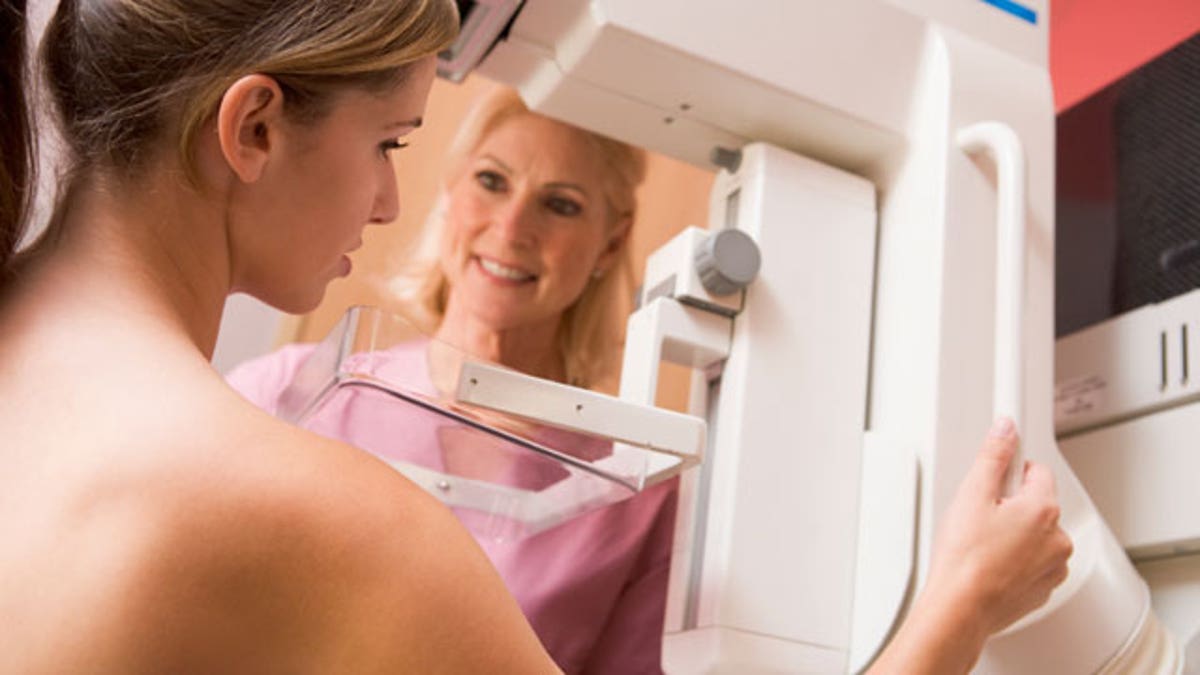
(iStock)
Many doctors would recommend mammograms to terminally ill women, even though there is almost no chance they would benefit, according to a U.S. poll.
Breast cancer screening with mammography is a controversial area, with medical groups differing in their recommendations on when and how often women should be screened.
But there should be "no controversy" when it comes to women with terminal illnesses, according to the researchers on the new study, which appears in the journal Cancer.
That's because those women would have virtually no chance of benefiting from early breast cancer detection, but they would face the risks of mammography screening -- including "false-positive" results that could lead to needless worry and invasive follow-up tests.
There is also the unnecessary cost of having terminally ill women undergo mammograms, which run $100 or more.
Yet in the new study, researchers found that nearly half of U.S. primary care doctors said they would recommend mammography screening to a hypothetical patient with inoperable lung cancer.
That's despite the fact that the average life expectancy with the disease is about 10 months.
What's more, if breast cancer were found in a woman with terminal lung cancer, she would probably not be eligible for treatment.
"We found it very surprising and concerning that so many doctors would recommend screening," said lead researcher Corinne R. Leach, of the American Cancer Society (ACS) in Atlanta.
"If a woman is not eligible for treatment, it doesn't make sense to screen," she noted in an interview.
So why would so many doctors recommend mammography screening to terminally ill women?
That's still not clear, according to Leach. One possibility is that uncertainty over mammography screening guidelines has something to do with it.
Those guidelines differ depending on the source. Guidelines from the ACS, for example, say that women at average risk of breast cancer should start yearly mammograms at age 40, and continue doing so as long as they are in "good health."
The U.S. Preventive Services Task Force, on the other hand, recommends that women get a screening mammogram every two years, between the ages of 50 and 74. And it says there is not enough evidence to know whether women age 75 and older benefit from screening, as studies have not included elderly women.
That leaves large gray areas, such as the common scenario where a woman is 65 years old and has heart disease or other major health conditions. It's unclear if she will live long enough to gain any benefit from regular mammograms.
Leach said that screening decisions need to be made on a case-by-case basis -- taking into account a woman's overall health and life expectancy.
The ACS takes the position that age alone should not be the determining factor.
"Every woman is different," Leach said. "So you should talk to your doctor. And don't be afraid to ask questions about whether mammography screening is right for you."
Leach's team based their findings on a national survey of 1,200 primary care doctors who were presented with several hypothetical patients and asked whether they would recommend mammography screening.
The "patients" were either 50, 65 or 80 years old, and either in good health, diagnosed with heart disease, or in the advanced stages of lung cancer.
Overall, 48 percent of doctors said they would recommend a screening mammogram to a woman with terminal lung cancer -- though that percentage went down the older the woman was. It also varied by the doctor's specialty.
Among internists, for example, 32 percent would recommend a mammogram to a 50-year-old lung cancer patient, while 11 percent would do so if the woman was 80 years old.
Obstetricians/gynecologists were more likely to advise mammograms: 65 percent would for a 50-year-old with lung cancer, and 37 percent for an 80-year-old.
A caveat, Leach said, is that doctors were responding to hypothetical scenarios. So the study does not necessarily capture what's happening in actual practice.
Leach said that more studies are needed to see how often screening mammography is actually recommended and performed in terminally ill women.








































